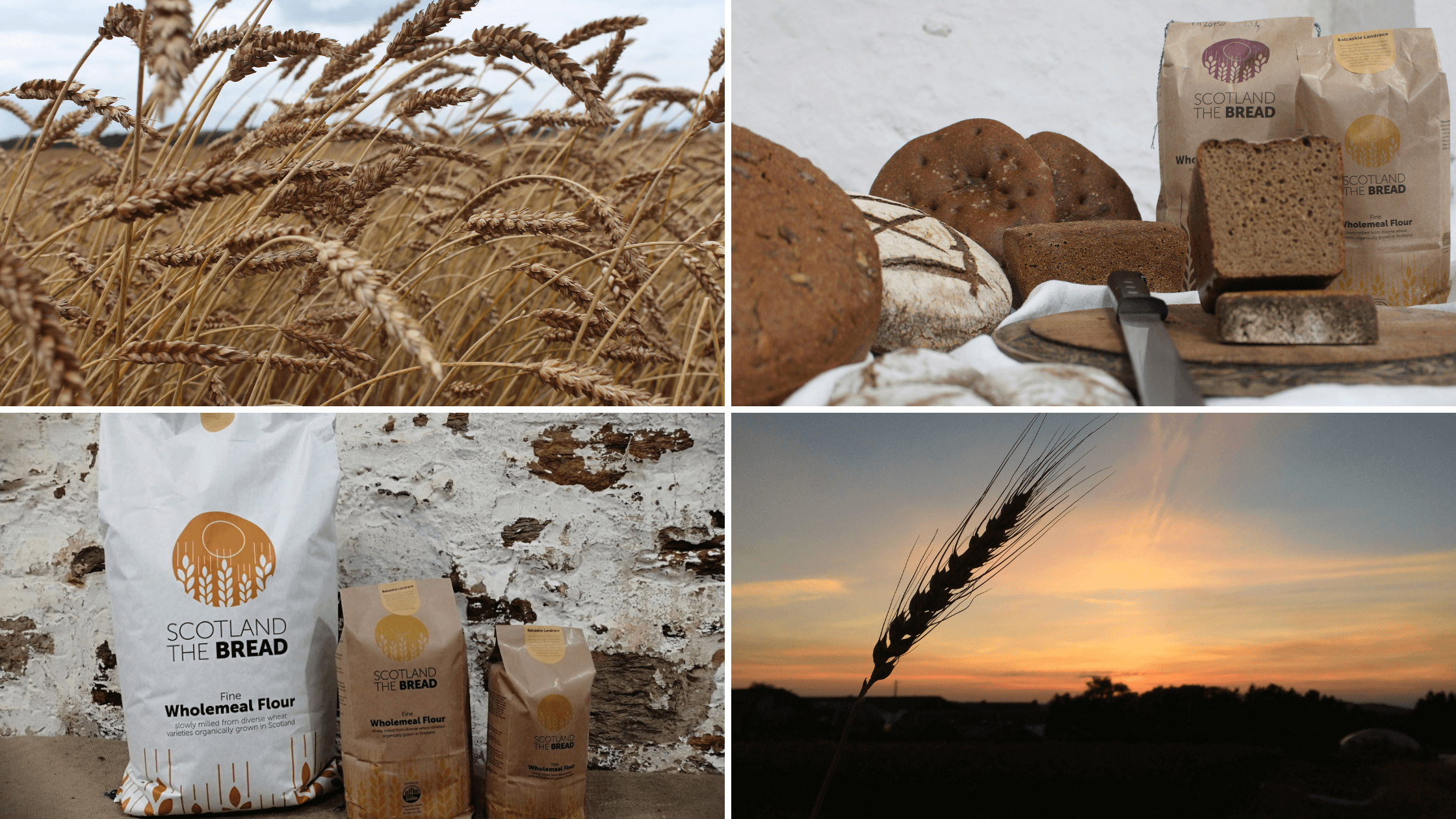British Food Fortnight with Scotland The Bread
As part of our series exploring co-ops and community business and their links with British Food for British Food Fortnight, We spoke to Andrew Whitley, Chairman of Bread For Good CIC – better known as Scotland The Bread – who was previously a baker of 25+ years standing and saw first hand the effects of commercial bread and bread making on people and society. This article is an edited version of that broad ranging conversation.
Scotland The Bread is a collaborative project to grow better grain and bake better bread with the common purposes of nourishment, sustainability and food sovereignty.
It grew out of a Bread Matters project, where we were shifting emphasis to more community baking training, and working towards creating a community supported bakery in the Borders. We spent a long time trying to figure out what the best format was for the organisation because our mission was ultimately to try to change the food system to make it healthier for everyone involved – all the people, but also all the animals and micro-organisms affected by our current intensive chemically based agricultural system. It became clear to me that our current food system was not serving the people well. I learned that we were growing tonnes of wheat here in Scotland each year but that little of it was feeding humans – it was being turned into animal feed, or into bioethanol to feed cars – and more worryingly, large amounts was going into cheap alcohol, which of course was definitely not addressing the serious alcohol problems that some sections of Scottish society have. Big agriculture was growing wheat for profit, but it was contributing little directly to good food, or to public health.
I looked further. At the time, the Scottish Government website actually said it was not possible to grow bread making wheat in Scotland. It’s now been adjusted to say that you can’t grow the varieties that industry wants, And this is the issue. It *is* possible to grow bread making wheat here – we do and it has been done before – and the wheat we grow is more genetically diverse than modern high-yielding varieties. Mechanisation and industrial processes govern every step of the wheat growing and flour making process – the straw needs to be a uniform length for the machinery to harvest and thresh, and industrial flour mills ’standardise’ their white flour output using synthetic enzymes. Wheat is being engineered to suit the machines that process it. We should grow wheat that is nutritious and sustainable, and find better ways to harvest and work with it.
Food security, relocalising where possible, and food sovereignty are inextricably linked to our ability to meet net zero carbon emissions. We launched our first three flours in 2017, milled from varieties that were common in Scotland in the 19th century. They are, on average, more nutrient-dense than most commercial alternatives. Commercial non-wholemeal flours have four mandatory fortificants added, and commercially made bread has a whole load of other stuff added including ‘vital wheat gluten’ (labelled as the innocuous-sounding ‘wheat protein’) whose purpose is to strengthen the flour to make it easier to machine it and to prolong shelf-life. These automated processes and machines require total consistency of raw materials 365 days a year, unlike bakers who can adapt to the variability of what starts out as a product of nature.
Relationships of trust between producer and citizen have been so damaged by industrial agriculture and food processing. Only when these begin to be restored can we hope to get an honest offer to people on low incomes. Let’s put the 200 year old idea that people with little money have to eat the worst quality food behind us. A lot of the food products that are sold – marketed – to people today are nutritionally poor and their marketing disingenuous. We pay twice, at the check-out and again through the resulting personal ill health and the destruction of our environment. Food security is not just about local production for local people – it’s the essential joining up of all the elements required to address the three great crises of our times – climate breakdown, diet-related ill-health, and the crisis of nature. We don’t need to ban international trade but we are importing things that we could perfectly easily grow. Why? We could have a long conversation here about market forces and economics but we can simply say that while we have an economic system that rewards export success but ignores public health, we will not serve people well.
Promoting British Food is not about being xenophobic – it’s grossly patronising to people to assume that only people who have the income and capacity to be aware of food issues are bothered about the source of their food. Anybody, whatever amount of money they have, and whatever their food purchasing habits – if they were asked, “Does it matter to you where your food comes from, do you want your food to support a vibrant local economy and pleasant looking countryside?” – would say yes. Imagine if we all had a say in how our country looked.
If people want to make their own bread with British flour during British Food Fortnight, even people who normally struggle with bloating or negative reactions after eating commercial bread, they can buy our fantastic flour on our website. It was talking with countless people, as far back as the 1970s, about the fact that they could eat my bakery bread, but not commercial bread, that tipped me into thinking about this. We believe bread matters, and we want an alternative food system and economy. We are building it one loaf at a time. Why not join us?

